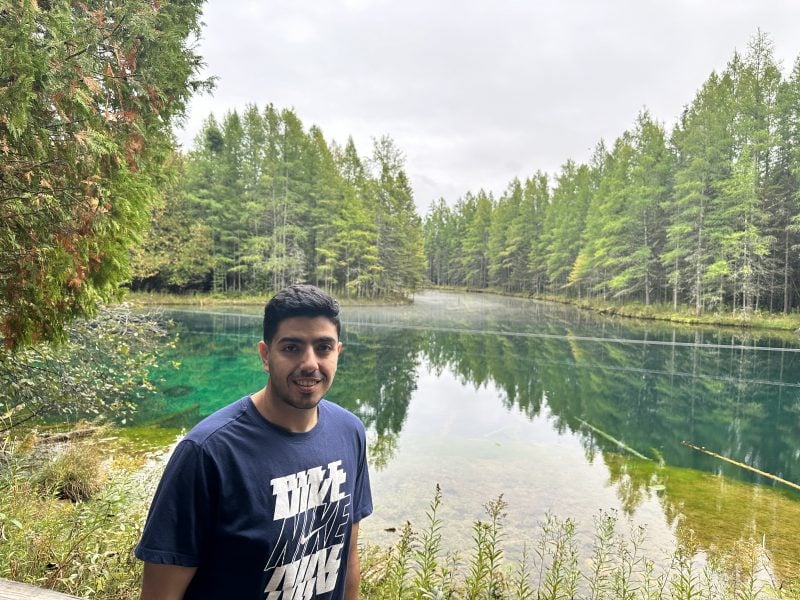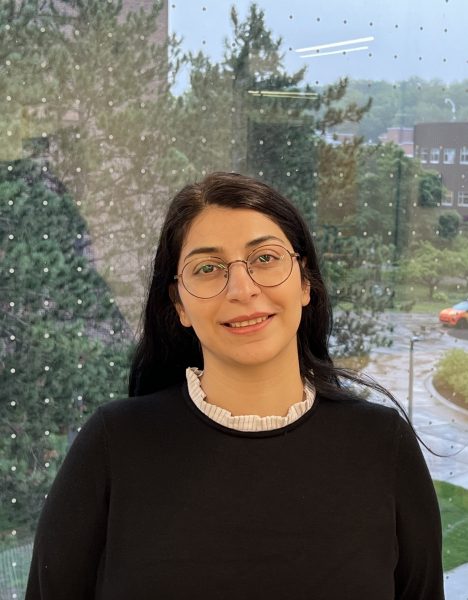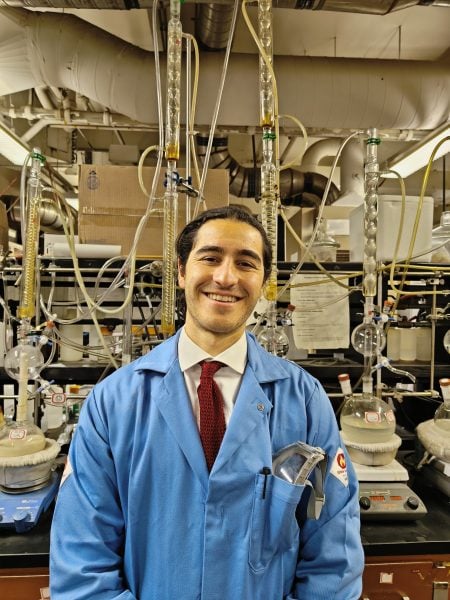I began my Ph.D. program in Fall 2019 under the guidance of Dr. Youngchul Ra in the Mechanical Engineering-Engineering Mechanics (MEEM) department at Michigan Technological University. My research focuses on evaluating the potential of low-carbon, highly reactive gasoline fuels as a future alternative fuel for conventional internal combustion engines. Utilizing the in-house computational fluid dynamics (CFD) tool, I performed numerical simulations to gain critical insights into fuel spray characteristics, fuel-air mixing behavior and ignition properties. This foundational work provided strong correlations with experimental data, enabling an assessment of these fuels suitability for multi-mode engine operations.
Building on these findings, I advanced my research by exploring the use of a low-carbon oxygenated synthetic fuel in a 6-stroke engine configuration. Through comprehensive engine simulation studies, I investigated key parameters for optimizing engine performance while striving to meet stringent emission targets. These efforts have offered valuable insights into the potential of synthetic fuels for creating more sustainable internal combustion engines.
I am deeply honored to receive the Doctoral Finishing Fellowship and I sincerely thank the Graduate School and the Dean’s Advisory Panel for this recognition. I also want to extend my heartfelt gratitude to my advisor, Dr. Youngchul Ra, for his unwavering support, guidance and mentorship throughout my master’s and doctoral journey. His insights and encouragement have been invaluable in shaping my research and academic growth.
“Reflecting on my academic journey, it is remarkable to see how my passion for electrical engineering and optics has evolved and deepened over the years. Starting with a Bachelor’s degree in Electrical Engineering, I embarked on a path that led me to Michigan Technological University (MTU) in 2018 for my Master’s degree. It was during my Master’s studies that I discovered a profound interest in optics, which set the stage for my PhD journey.
In 2020, I began my PhD in Electrical Engineering at MTU under the guidance of Dr. Guney, focusing on optics and machine learning in optics. As my research progressed, I continued to explore the fascinating realms of turbulent medium imaging. In 2022, an exciting opportunity arose when I joined Dr. Askari’s lab, thanks to an NSF grant aimed at improving imaging through atmospheric turbulence for geology and volcanology applications. This collaborative endeavor, under the supervision of both Dr. Guney and Dr. Askari, has been incredibly rewarding. Our work has centered on employing Active Convolved Illumination (ACI), an advanced optical method that addresses system imperfections, and deep learning methods to tackle atmospheric distortion, improving the moiré apparatus’s capability to measure ground displacement near active volcano vents.
Teaching has always been a passion of mine, and since joining MTU, I have been actively involved in teaching. In my first year as a TA, I was honored to receive the Outstanding Graduate Student Teaching Award in the Electrical Engineering department. Additionally, I was selected to be the graduate instructor for the Signals and Systems course, an experience that allowed me to share my enthusiasm for engineering with students, simplify complex concepts, and witness their moments of realization.
Outside of academics, my time at MTU has been enriched by sports. The excellent sports facilities at MTU have allowed me to become an indoor soccer champion and a softball champion, activities through which I have forged lasting friendships and maintained a balanced lifestyle.
Receiving the PhD finishing fellowship from the Dean of the advisory panel is a tremendous honor. My current work on enhancing imaging through a turbulent medium has significant implications for geological and volcanological studies, and this fellowship will provide the necessary resources and time to ensure that my research contributes meaningfully to the field.
As I look towards the future, I am inspired by the possibilities that lie ahead. My main goal in starting graduate school was to learn how to conduct research and improve my self-learning skills. I am committed to advancing research in imaging through turbulent volumes and contributing to the broader field of optics. With gratitude and determination, I am excited to continue my work and make meaningful contributions to the field of electrical engineering and beyond.”
My journey at Michigan Technological University began in the summer of 2021 when I joined the Ph.D. program in the Biomedical Engineering department. My research focuses on biomimetic chemistry inspired by the strong underwater adhesion mechanisms utilized by mussels. Specifically, I have been developing biomimetic materials for infection prevention and hemostasis applications. This includes creating self-disinfecting coatings to limit the spread of infections and introducing a portable, powder-form hemostatic agent designed to control hemorrhage in prehospital settings while also preventing infection.
I extend my sincere gratitude to the Graduate School and the Graduate Dean Awards Advisory Panel for the Doctoral Finishing Fellowship. A special acknowledgement goes to my advisor, Dr. Bruce Lee, for his motivation, guidance, and support throughout my journey. His mentorship has helped me not only succeed in my projects but also grow as an independent researcher. I would also like to express my appreciation to my committee members, collaborators, lab members, and the faculty and staff of the Department of Biomedical Engineering for their support and assistance during my Ph.D. journey.
I am excited to apply the technical and leadership skills I have gained during this degree to further research in the healthcare industry.
As a Ph.D. candidate in Atmospheric Sciences at Michigan Technological University, my journey began in Fall 2019. Growing up in Kathmandu, Nepal, a city with significant environmental challenges, inspired my passion for studying the complex interactions between humans and the environment. Early internships in Nepal working with meteorological and pollution monitoring instruments further fueled my curiosity in the field. My undergraduate projects at the National Institute of Technology Calicut in India introduced me to using optics to detect and study gasses and their atmospheric effects, combining my background in Physics Engineering with my environmental interests.
At Michigan Tech, my research focuses on the evolution of biomass burning aerosol particles and their role in cloud formation and atmospheric processes. Using Michigan Tech’s cloud chamber, I study how these particles evolve when they form clouds and re-enter the atmosphere. The dynamic challenges of this research, from the chamber’s large size to the particles’ minuteness, have made it an engaging and fulfilling endeavor.
I am deeply grateful to my advisor, Dr. Claudio Mazzoleni, for his unwavering support and wisdom. I also thank my department and everyone involved in the program who has made the cloud chamber experiments possible. Additionally, I extend my gratitude to the Henes Center for Quantum Phenomena and the Graduate Student Government for supporting conference travel, which facilitated interactions with experts and innovations in my project. Finally, I thank the Graduate School for providing this fellowship that will support me in this crucial final part of my graduate journey.
Through billions of years of evolution, the chemical structure of biomolecules has become fine-tuned; they are radically fit for purpose. One of Life’s best kept secrets, that has interested me since my studies in my undergraduate degree (Genomics and Molecular Genetics, Michigan State University, 2019), is the chemical nature of DNA and RNA. After joining the Biochemistry and Molecular Biology PhD program (January 2020) – in the Department of Chemistry – at Michigan Technological University, I have been heavily involved in the use of organic synthetic chemistry to better understand the chemistry of DNA/RNA. I currently work on improving the chemical synthesis of DNA/RNA, whereby we make them readily available to medical and R&D applications. As I work on DNA/RNA chemical synthesis, I undoubtedly gain insight into the biochemical process of their synthesis in life. Nucleic acids will forever amaze me, as they can function both as catalytic structures and high information storage systems. With the help of organic synthesis, our knowledge in biology can greatly be expanded, and the door to Life’s deepest secret close to being unlocked.
It is with sincere gratitude that I thank the Graduate Dean Awards Advisory Panel, and those whose donations make this fellowship possible, for recommending and funding my awarding of this finishing fellowship. In addition, I am thankful for my advisors (Dr. Shiyue Fang and Dr. Yinan Yuan) for their deep wells of knowledge that I endlessly tapped in the pursuit of my research. Finally, I must thank my committee members (Dr. Tarun Dam, Dr. Marina Tanasova, and Dr. Mark Tang) as well as the Department of Chemistry (Current and past chairs: Dr. Athar Ata, Dr. Sarah Green, and Dr. John Jaszczak), for their advice and support through this journey.
I am deeply grateful and honored to receive the Finishing Fellowship Award from the Graduate School and the Graduate Dean’s Advisory Panel. I would also like to extend my appreciation to the Department of Electrical and Computer Engineering for their unwavering support throughout my doctoral studies.
My journey at Michigan Tech began in 2020 as a Ph.D. candidate. I had the privilege of joining Dr. Zhang’s lab in the summer of 2021. I am deeply thankful to Dr. Zhang, whose guidance and mentorship have been invaluable in shaping my academic journey and honing my critical thinking abilities. When Dr. Zhang moved to another university, I transitioned to Dr. Yang’s lab for my final project. I am also thankful to Dr. Yang for his support and guidance in completing my Ph.D. studies. Additionally, I would like to thank my research lab colleagues for their support and friendship.
My research aims to explore the evolving landscape of machine learning and artificial intelligence, focusing on areas such as domain adaptation, tiny machine learning, and model stealing. By addressing key performance, scalability, and security challenges, my work contributes to developing robust, efficient, and secure AI systems that can be applied across a wide range of applications.
In addition to my research, I have contributed as a graduate teaching assistant in the Electrical and Computer Engineering Department. I had the opportunity to work with Dr. Archer and Dr. Bergstrom to assist with lab courses, and I am grateful to them for their immense support in understanding the overall curriculum. I am grateful for the support and opportunities provided by Michigan Tech that have allowed me to explore my interests in the research field.
Originally from Maine, my fascination with the automotive industry led me to explore schools in the Midwest. Michigan Tech stood out due to its automotive focus and the abundance of outdoor activities in the local area. After graduating from the University of Maine in 2020, I was fortunate to join a Department of Energy-funded project at Michigan Tech to pursue a Ph.D. in Mechanical Engineering.
At the Advanced Power Systems Research Center (APSRC), my research has centered on the modeling, simulation, and analysis of a heavy-duty off-road material handler, with a project goal to reduce fuel consumption by 20%. I developed a high-fidelity model of the propulsion and hydraulic systems, analyzed fuel-saving options, and identified electrified powertrain configurations that maximize fuel efficiency while maintaining performance. Additionally, my research has investigated advanced control methods to achieve further fuel savings, including artificial intelligence and optimization techniques.
One of the most rewarding aspects of my research has been witnessing the significant impact of these fuel-saving technologies on the heavy-duty off-road industry. This sector, often overshadowed by light-duty vehicle research, offers opportunities for substantial carbon dioxide reductions through relatively minor changes. Our team is currently nearing completion of a machine build for a plug-in series hybrid expected to achieve about 40% fuel savings compared to the baseline machine, showcasing the profound potential of this work in reducing emissions.
I am deeply grateful to the Graduate Dean Awards Advisory Panel and the dean for selecting me as a fellowship recipient. My sincere thanks also go to my co-advisors, Dr. Darrell Robinette and Dr. Jeremy Worm, whose unwavering support and guidance over the last four years have been invaluable. This achievement would not have been possible without their mentorship.
I joined Michigan Tech as a PhD student during the winter of 2020 working with my advisor, Dr. Kristin Brzeski, and the National Park Service to track wolves and monitor their genetic health through the use of molecular tools. I was immediately drawn to this project as my research interests surround the use of molecular tools and application of evolutionary theory to make informed wildlife management decisions.
My dissertation utilizes a variety of molecular tools to understand the health of a recently introduced population of wolves on Isle Royale National Park and wolves in the western Great Lakes Region. To accomplish this, I optimized a set of molecular markers that will help track the number of wolves occupying Isle Royale as well as the level of inbreeding within the population. With this information we can better understand the health of the wolf population through time and if interventions may be necessary. Further, through work focused on the Great Lakes Region, we have found the most recently recolonized wolf populations (Wisconsin and the Upper Peninsula of Michigan) have the poorest genetic health, emphasizing the importance of maintaining wolf migration between states to alleviate these effects.
Since I first arrived at Michigan Tech, I have had the opportunity to learn many new skill sets ranging from technical molecular methods to communicating scientific information to broad audiences. I cannot thank my advisor, my committee, fellow graduate students, and staff for their guidance, help, and training throughout my PhD journey. Last, I would like to thank the Graduate Dean Awards Advisory Panel for awarding me the finishing fellowship.
Applications for Spring 2025 finishing fellowships are being accepted and are due no later than 4pm on October 23, 2024 to the Graduate School. Please email applications to gradschool@mtu.edu.
Instructions on the application and evaluation process are found online. Students are eligible if all of the following criteria are met:
- Must be a PhD student.
- Must expect to finish during the semester supported as a finishing fellow.
- Must have submitted no more than one previous application for a finishing fellowship.
- Must be eligible for candidacy (tuition charged at Research Mode rate) at the time of application.
- Must not hold a final oral examination (“defense”) prior to the start of the award semester.
Finishing Fellowships provide support to PhD candidates who are close to completing their degrees. These fellowships are available through the generosity of alumni and friends of the University. They are intended to recognize outstanding PhD candidates who are in need of financial support to finish their degrees and are also contributing to the attainment of goals outlined in The Michigan Tech Plan. The Graduate School anticipates funding up to ten fellowships with support ranging from $2000 to full support (stipend + tuition). Students who receive full support through a Finishing Fellowship may not accept any other employment. For example, students cannot be fully supported by a Finishing Fellowship and accept support as a GTA or GRA.
First and foremost, I express my sincere gratitude to the Graduate Dean Awards Advisory Panel for their recommendation for this esteemed award. I would also like to extend my appreciation to the Department of Civil, Environmental, and Geospatial Engineering for their unwavering support throughout my doctoral studies. Particularly, I am deeply thankful to my advisor, Dr. Qingli Dai, whose guidance and mentorship have been invaluable in shaping my academic journey and honing my critical thinking abilities. Without her steadfast commitment and insight, I would not have attained the level of proficiency I possess as a PhD candidate today.
My dissertation focuses on the evaluation and prediction of chloride ingress in concrete and its impact on reinforced rebars. Concrete stands as the most widely utilized construction material globally; however, due to the intricate nature of concrete composition and the variability in exposure conditions, accurately predicting concrete performance presents a significant challenge. Through a combination of laboratory experimentation and numerical simulations, my dissertation enhances the accuracy of predicting chloride penetration depth and rebar corrosion processes, offering valuable insights for concrete design and maintenance.
In addition to my dissertation, I have contributed as a graduate research assistant to two projects: “Build Sustainable and Durable Rubber-Modified Concrete Pavement” and “Evaluation of Conditions Causing Negative Environmental Impacts When Using Recycled Concrete Aggregate.” The former project resulted in the successful construction of the inaugural rubberized concrete pavement in Muskegon, Michigan. The latter project is still ongoing, focusing on evaluating how recycled concrete aggregate materials impact the surrounding environment. These practical project experiences provided valuable knowledge about the concrete industry, which is very beneficial for my future career.








